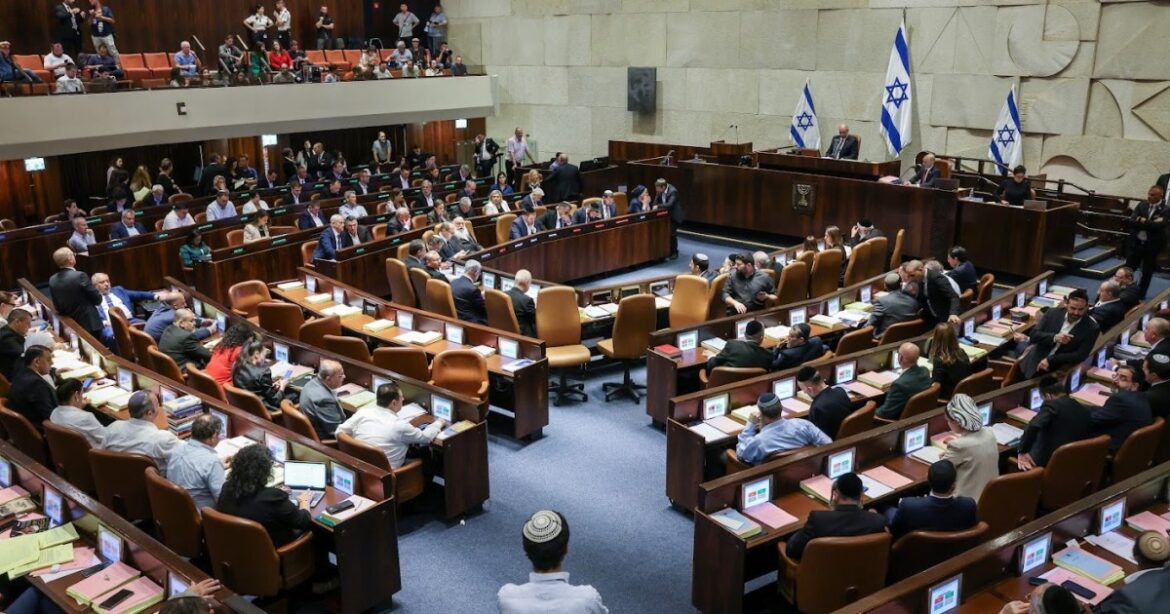Today, Wednesday, the Israeli Knesset approved, in preliminary reading, a draft law prohibiting the opening of diplomatic missions in Jerusalem to provide services to the Palestinians, in order to avoid the possibility of the emergence of a de facto status for Jerusalem as a shared city.
This project was submitted by Zeev Elkin, a member of the Knesset from the Likud Party led by Prime Minister Benjamin Netanyahu, and it still must be voted on with 3 additional readings to become an effective law.
The Knesset said – in a statement – that the draft law was supported by 18 members, and seven opposed it, and it will be submitted to the Constitution Committee for discussion, in preparation for submitting it for a vote.
The draft stipulates that Israel will not allow a foreign political entity to open or operate a diplomatic mission in Jerusalem to serve non-residents of Israel.
He added that in Israel, no government allowed the opening of any representation of a foreign entity that was not intended to serve its population, and the reason for not granting this permission was the possibility of the emergence of a de facto status for Jerusalem as a shared city.
The Knesset pointed out that today there are 8 consulates in Israel that provide services to Israelis and Palestinians, but they were open before the establishment of the state in 1948.
These consulates are Turkish, British, French, Spanish, Swedish, Italian, Belgian, and Greek.
Prevent and restrict
The Knesset added that since the establishment of the “state,” no foreign representation of this kind has been established in Jerusalem, and countries that wanted to provide service to the Palestinians have established diplomatic missions in the city of Ramallah in the West Bank or Arab countries, including Canada, Brazil, Argentina, Portugal, and Jordan.
In a punitive response, Israel decided on May 27 to prevent the Spanish consulate in East Jerusalem from providing services to Palestinian residents of the West Bank and Gaza Strip.
Spanish Foreign Minister Jose Manuel Albarez’s response was that his country’s consulate in Jerusalem enjoys a “special and historical status,” as it was before the existence of Israel.
The draft law comes after Slovenia, Spain, Ireland and Norway officially recognized the State of Palestine, and pledged to open embassies and diplomatic headquarters in Jerusalem.



